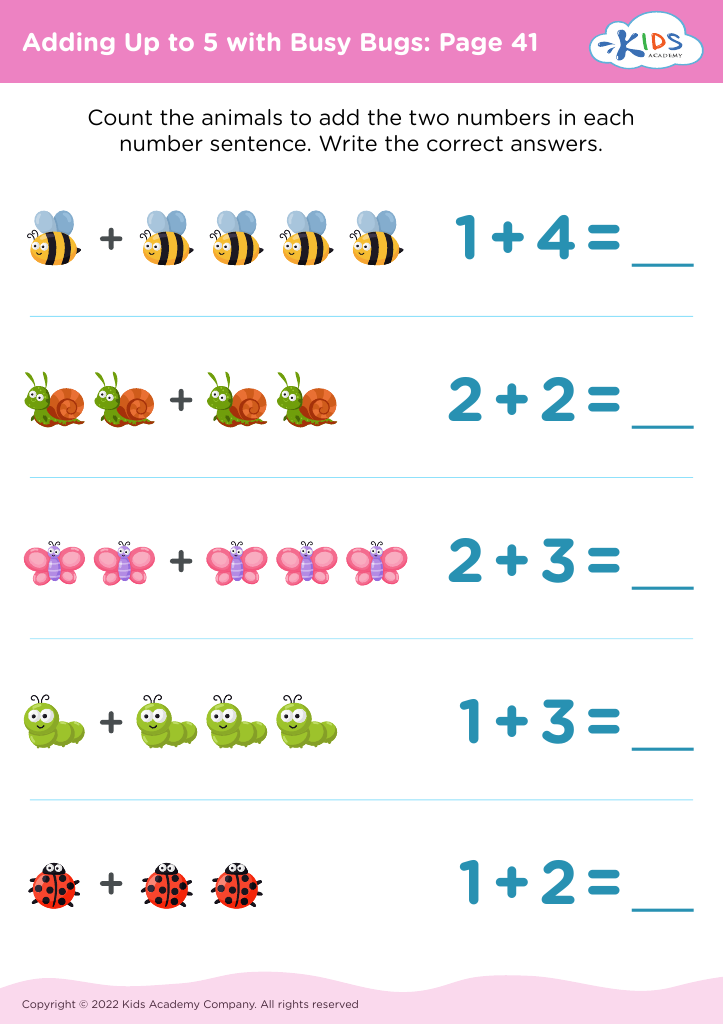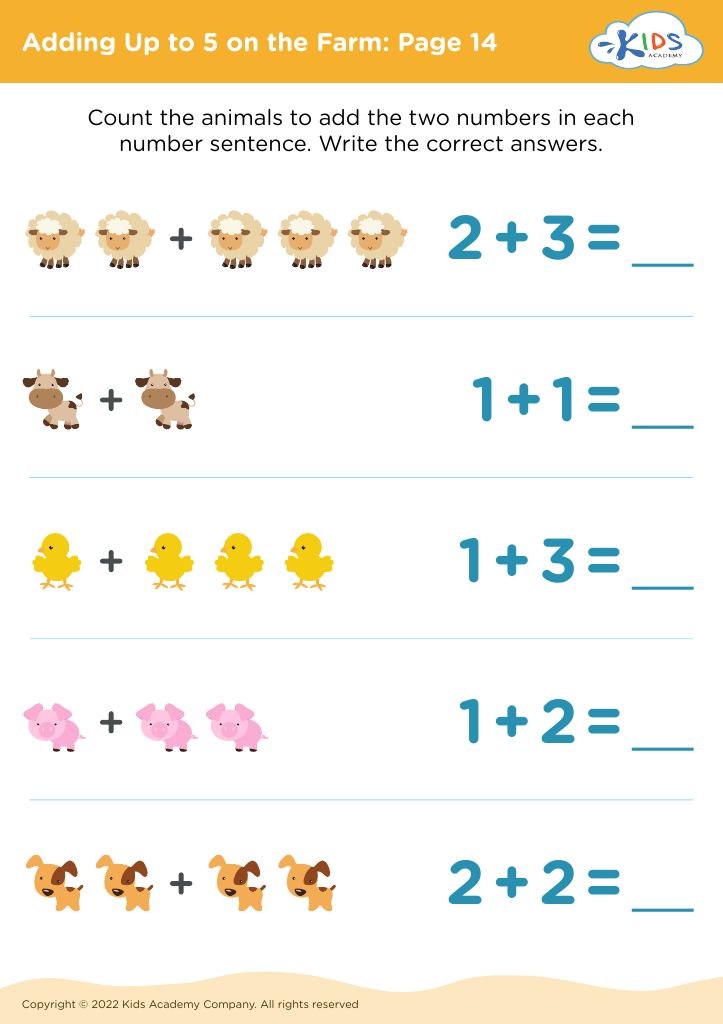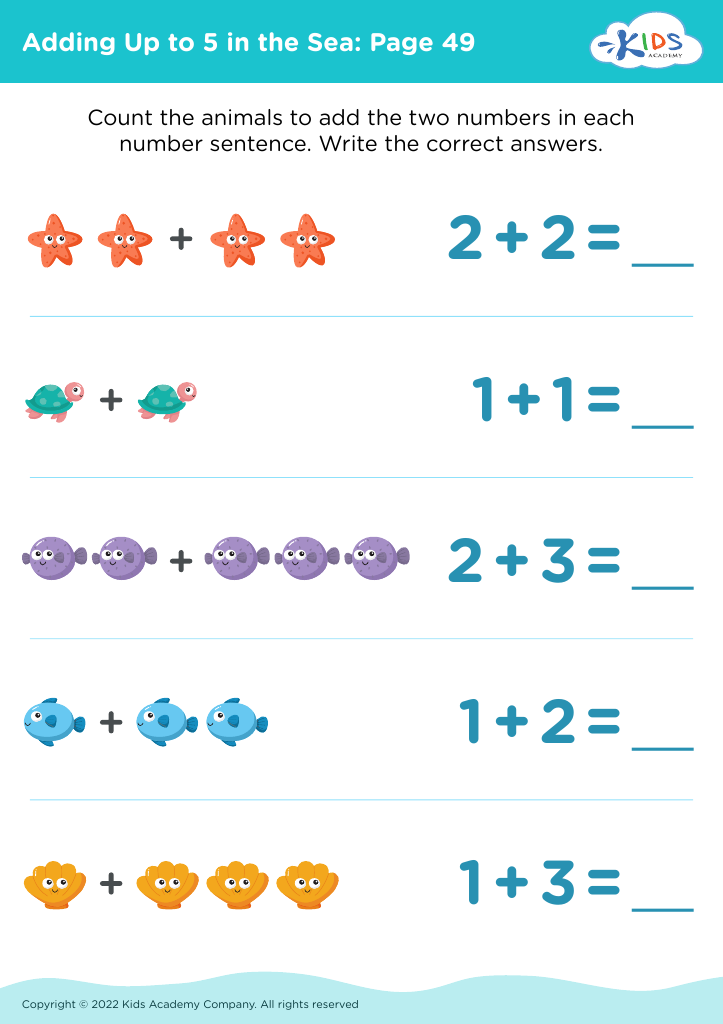Understanding number values Addition & Subtraction Worksheets for Ages 5-6
3 filtered results
-
From - To
Introduce young learners to the world of mathematics with our engaging "Understanding Number Values: Addition & Subtraction Worksheets for Ages 5-6" at Kids Academy. These expertly crafted worksheets help children build strong foundational skills in recognizing and understanding number values, while mastering basic addition and subtraction. Each activity utilizes fun, relatable themes and visuals designed to captivate young minds, making learning both effective and enjoyable. Our worksheets promote critical thinking and problem-solving skills, ensuring children are well-prepared for more advanced math concepts. Empower your child's educational journey with our carefully designed, age-appropriate math resources.
Understanding number values, addition, and subtraction for children ages 5-6 lays the groundwork for their entire mathematical journey and overall cognitive development. This age marks a crucial period where young minds are particularly receptive to grasping foundational math concepts. Early comprehension of number values develops number sense—the ability to understand, relate, and connect numbers, making children capable of solving simple everyday problems.
Teaching addition and subtraction to young children introduces them to basic problem-solving skills and logical thinking. Early exposure ensures they become comfortable with manipulating numbers, boosts their confidence, and reduces apprehensions about math as they advance to more complex operations. Moreover, comprehension of basic arithmetic fosters critical thinking, supports the ability to predict quantities, and cultivates decision-making skills.
Furthermore, proficiency in these areas taps directly into a child’s ability to progress academically not just in mathematics, but across subjects, as math is deeply integrated into sciences, technology, and other academic disciplines. For teachers and parents, supporting young learners in acquiring these skills facilitates smoother transitions into more intricate concepts later on. This early investment in basic arithmetic skills pays long-term educational dividends by preparing children to succeed in future learning endeavors and in life.























